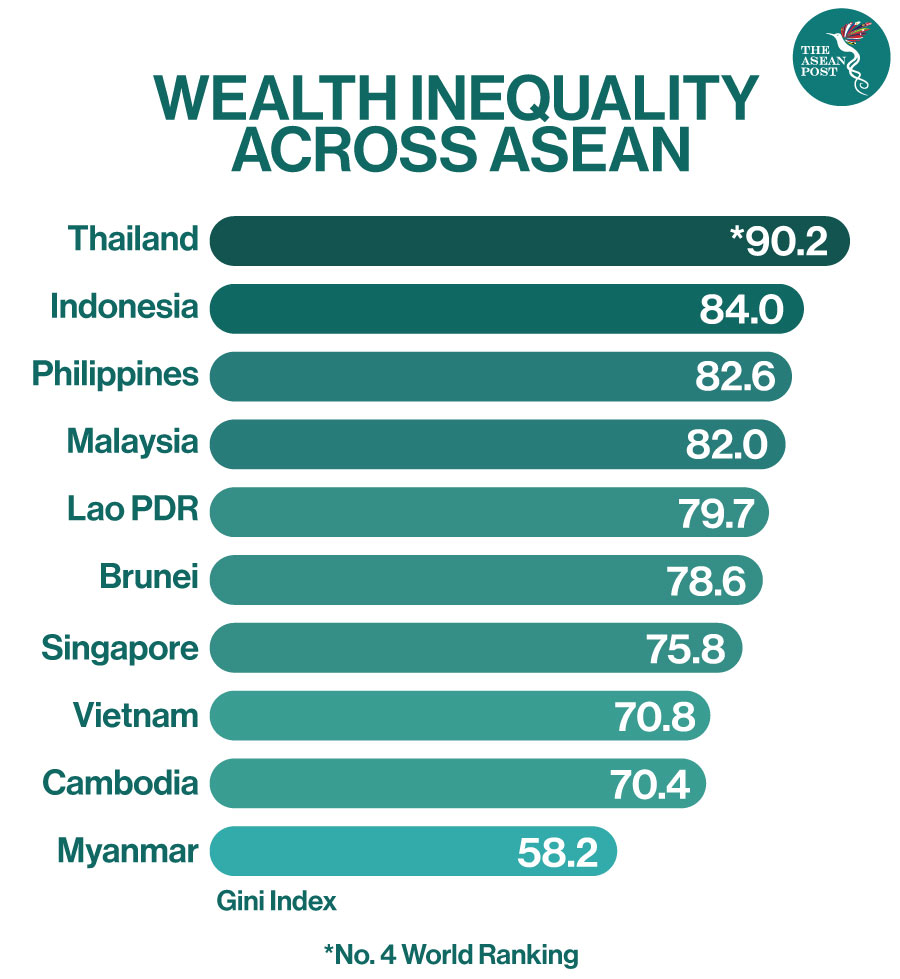To date, over 3,000 people have contracted the COVID-19 virus in Thailand, with 58 deaths reported from the deadly disease. Although the kingdom seems to have managed to contain the virus with its preventive measures – like everywhere else around the world, the pandemic has severely affected livelihoods, local businesses and the economy in general.
A 2020 report by Thailand’s National Economic and Social Development Council (NESDC) stated that an estimated 8.4 million workers in the country may lose their jobs due to the pandemic. The crisis has left many Thais jobless, anxious and in great debt.
According to media reports, Thailand’s household debt is among the highest in Asia, accounting for 79.1 percent of the gross domestic product (GDP).
Last year, the University of Thai Chamber of Commerce (UTCC) revealed that the slowing economy had triggered a surge in household debt of 7.4 percent. The university's survey of 1,201 respondents from 11 to 23 November, 2019 found that household debt averaged THB340,053 (US$11,248) per household, compared to THB316,623 (US$10,473) a year-earlier, up from 5.8 percent in November 2017.
Unfortunately, the pandemic could possibly exacerbate the situation in Thailand’s households.
The university’s survey found that household debt stems from borrowing for general spending, car and housing loans, credit card charges and existing debt repayments.
One of the key findings, however, was that while some 59.2 percent of the debt was formal debt borrowed from legitimate financial institutions, 40.8 percent was what is considered underground debt, meaning debt owed to loan sharks.
Loan sharks are a major problem in Thailand – as is the case in many other places around the globe. In September 2018, it was reported that the then-military government – through its efforts to help those who had fallen victim to loan sharks – had succeeded in returning land and assets worth THB3.25 billion (US$107.5 million) to borrowers in the Northeast. The Northeast is one of the poorest regions in the country.
At a ceremony in Kalasin, then-Thailand Deputy Prime Minister, Prawit Wongsuwon, who also served as defence minister, handed 1,407 title deeds covering more than 5,100 rai to residents in eight north-eastern provinces. (One rai is a unit of area equal to 1,600 square metres).
While the government deserves recognition for returning land and assets to borrowers, the amount returned also paints a picture of how big an issue loan sharks are in the Southeast Asian country.
Just last month, Chonburi police announced an ongoing crackdown on illegal shark loans following an investigation on an illegal loan shark group that had been preying on virus-hit Thais and offering loans with illegal interest rates. It was reported that the loan shark gang used social media platforms like Facebook to find potential victims.

Inequality
Loan sharks have long been an issue in Thailand. In October 2014, local news media agency, The Nation published an opinion piece in which it said a toxic mix of inequality and lax financial discipline were among the chief reasons why many citizens fall prey to illegal lenders.
It would be unfair to state here that Thailand has not made efforts to address inequality in the country. There has been real improvement in the past few years. However, the fact of the matter is that inequality continues to exist.
The Bank of Thailand’s research institute, the Puey Ungphakorn Institute for Economic Research, found that approximately 36 percent of Thailand’s corporate equity is held by just 500 individuals compared to the country’s current population of about 69.6 million people. The institute’s report stated that each of these 500 individuals amass some THB3.1 billion (US$102 million) per year in company profits; compared to the average yearly household income of around US$10,000.
It has long been known that just one percent (known as the one percenters) of the world’s population own most of the world’s wealth. This is certainly the case throughout most of the world; the ASEAN region being no different. Nonetheless, in the case of Thailand, this wealth inequality is simply higher.
A 2018 report published by the Credit Suisse Research Institute had Thailand scoring 90.2 on the Gini index. This made it the country with the widest income inequality in ASEAN and one of the four worst performers on a world chart which included Ukraine (95.5), Kazakhstan (95.2), and Egypt (90.9).
The Gini index is a simple measure of the distribution of income across income percentiles in a population. A higher Gini index indicates greater inequality, with high income individuals receiving much larger percentages of the total income of the population.
Thailand’s slowing economy may further exasperate issues of inequality and, in effect, the problem of loan sharks.
Related Articles:
